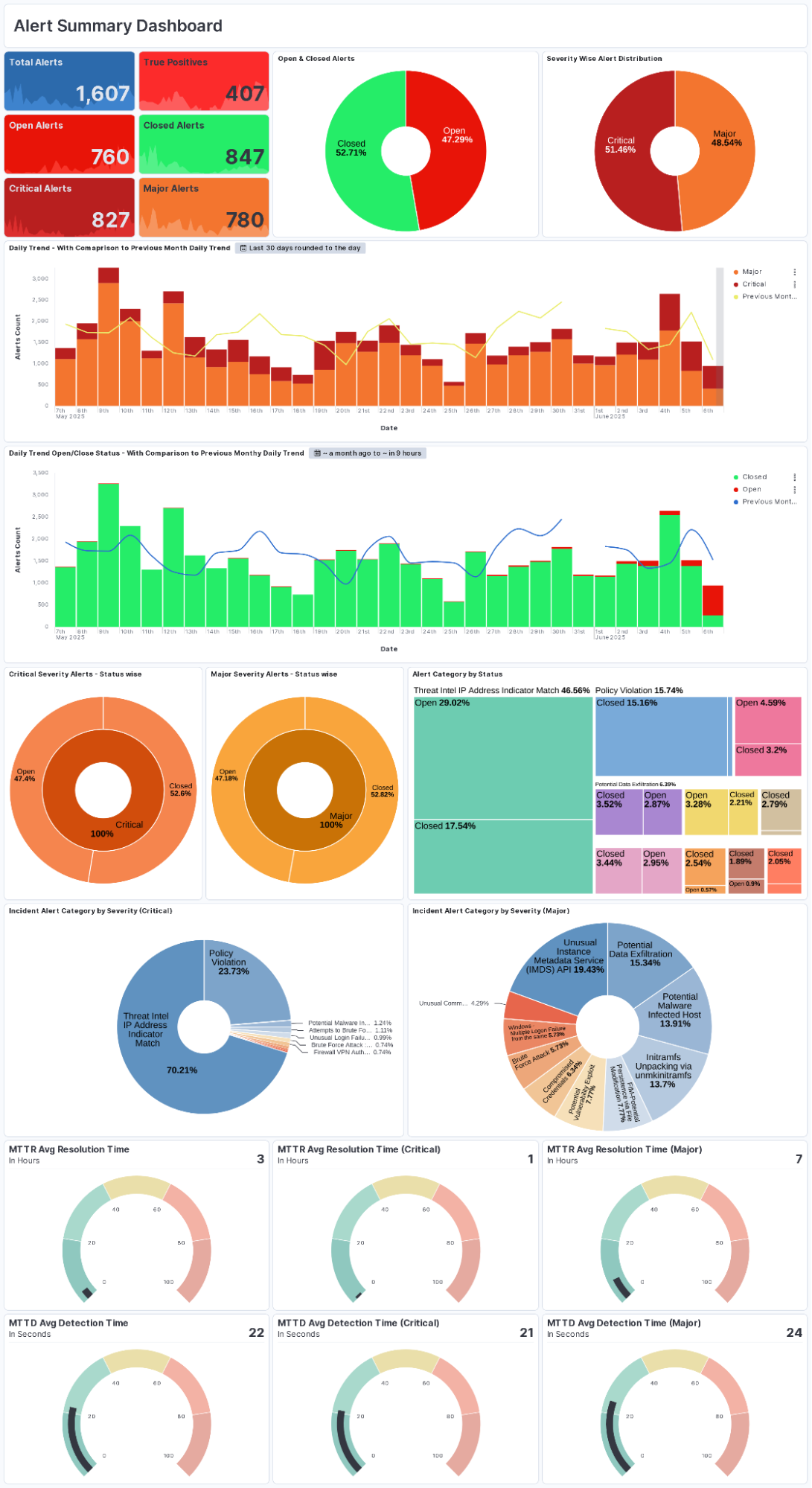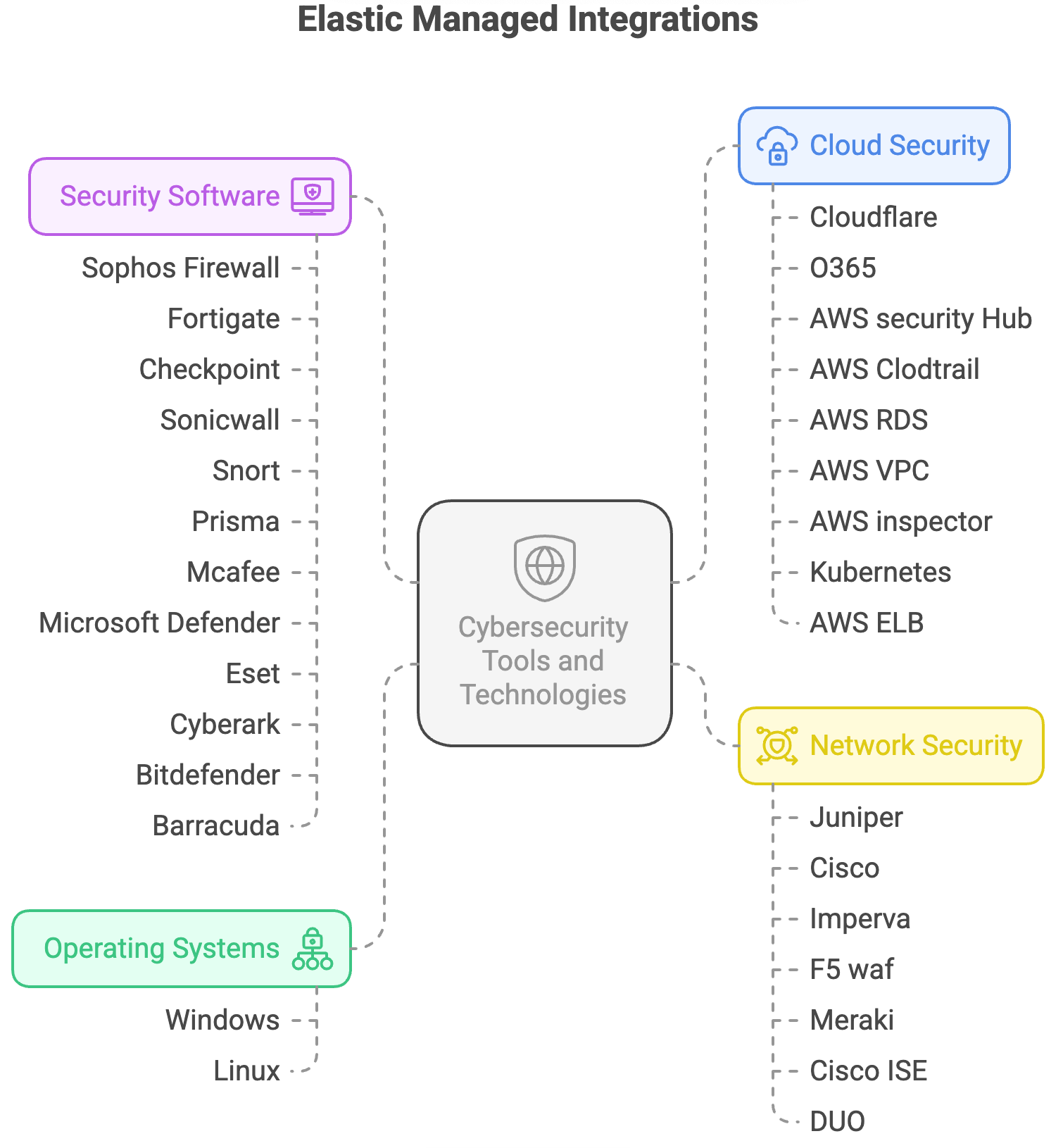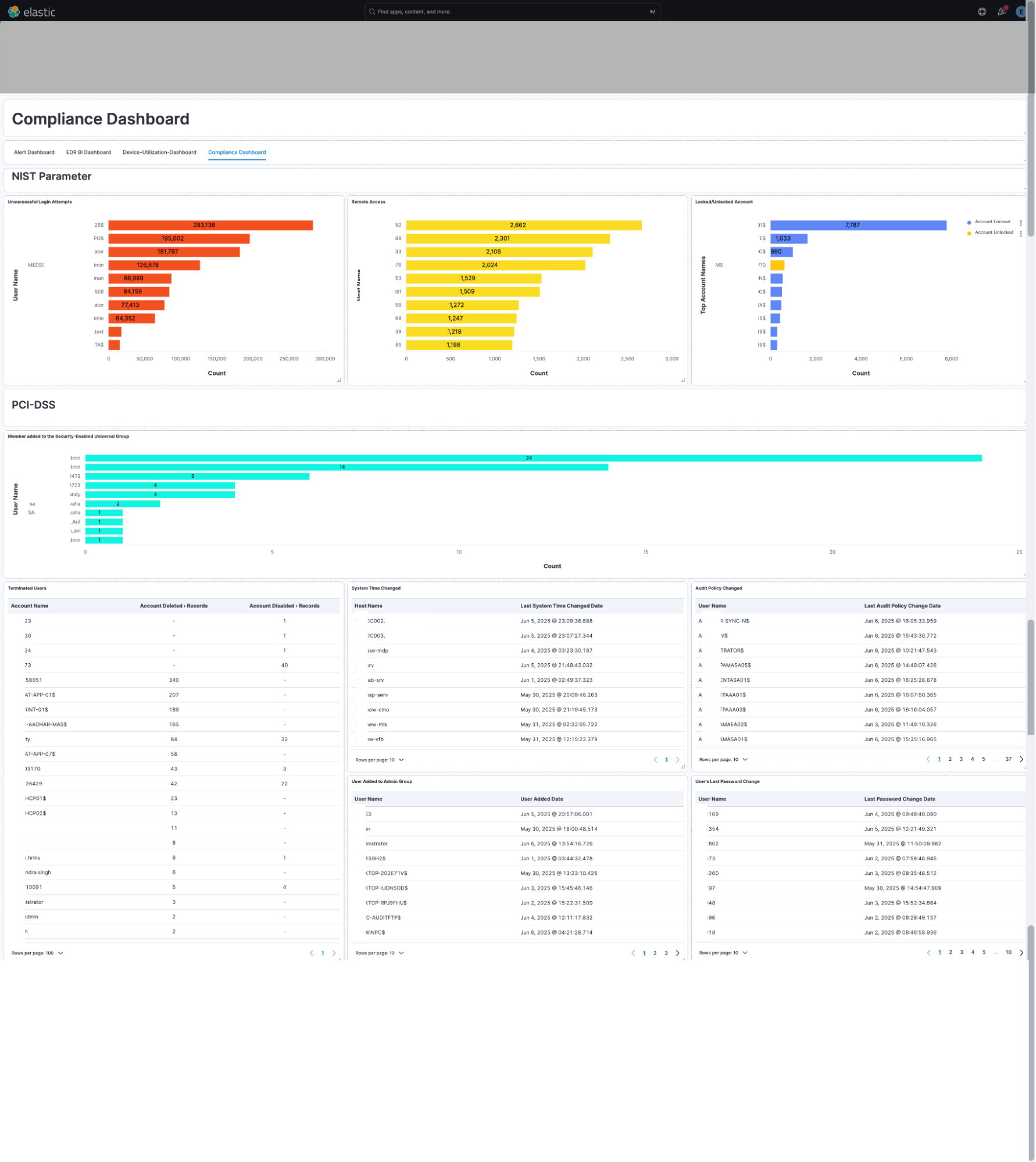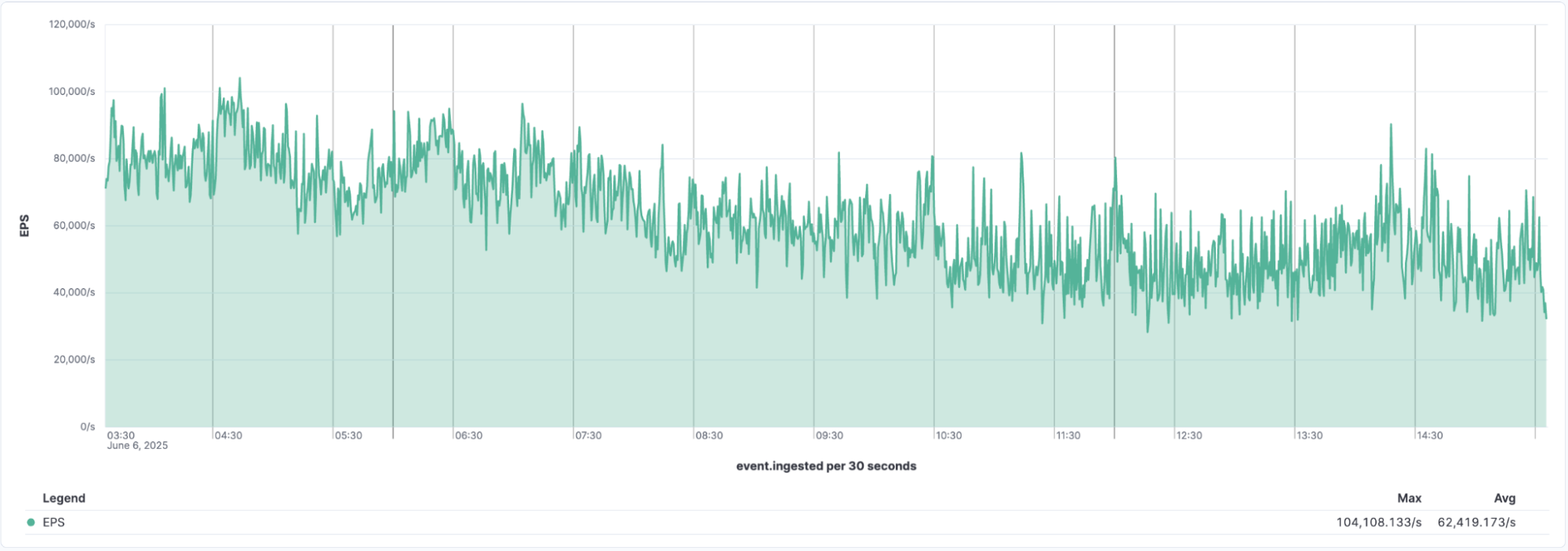Airtel is strengthening security operations with Elastic’s AI-driven analytics

In a previous blog post, we covered how Airtel’s (a leading telecommunications provider) managed security services (MSS), powered by Elastic Security, provide real-time threat detection, advanced analytics, and cloud security for enterprise customers. By using SIEM, endpoint protection, cloud security, and threat intelligence, Airtel enhances proactive threat hunting and incident response.
In this blog, we will explore AI-driven features of Elastic Security like AI Assistant, Attack Discovery, and onboarding of custom data with Automatic Import.
Delivering AI-driven capabilities with Elastic Security
By integrating Elastic’s AI-driven security capabilities, Airtel MSS is able to deliver faster, smarter, and more proactive cybersecurity services, helping businesses strengthen their defenses against ever-evolving threats.
Attack Discovery: Elastic Security’s Attack Discovery feature automates the correlation of security events, identifying complex attack patterns in seconds. This enables managed security services providers (MSSPs) to detect stealthy threats faster, reducing attacker dwell time and minimizing breach impact.

Elastic AI Assistant for Security: Elastic AI Assistant for Security enhances analyst efficiency by providing intelligent recommendations, automated threat hunting queries, and contextual insights. This reduces manual effort, accelerates triage, and empowers MSSPs to respond to incidents with greater precision.

Automatic Import: Automatic Import automates the development of custom data integrations with generative AI, cutting the effort needed to create and validate custom integrations from up to several days to less than 10 minutes and significantly lowering the learning curve for onboarding data.
GenAI-powered security features: Elastic Security’s GenAI features improve anomaly detection, behavioral analytics, and predictive threat modeling. With machine learning-driven insights, MSSPs can proactively mitigate risks before they result in full-scale attacks.
These capabilities enhance operational efficiency, reduce alert fatigue through automated prioritization, and ensure scalable, cost-effective security operations.
The above features offer significant benefits to Airtel MSS by enhancing their ability to deliver comprehensive security solutions to their customers, like:
Enhanced threat detection and response: Elastic's Attack Discovery uses AI-driven insights to identify and respond to threats more effectively. This capability allows Airtel to detect anomalies and potential security incidents quickly, reducing the mean time to detect (MTTD) and respond (MTTR) to threats.
Search AI powered insights: Elastic AI Assistant for Security provides Airtel with advanced capabilities to generate queries and visualizations, reducing the learning curve for security investigations. This tool helps analysts interactively explore problems and execute remedies using generative AI, which accelerates incident management and root cause analysis.
Scalability and flexibility: Elastic's Search AI Platform is designed to handle large volumes of data, making it suitable for Airtel managing multiple clients with varying data needs. The platform's ability to ingest and analyze data from any source ensures that Airtel can provide tailored security solutions to its clients.
Cost-efficiency: By consolidating multiple security tools into a single platform, Elastic helps MSSPs reduce operational costs. The unified data store eliminates the need for data rehydration, enabling long-term historical analysis and reducing storage costs.
Improved collaboration and productivity: Elastic's solutions facilitate better collaboration between technical and business teams by providing a single pane of glass for security operations. This integration reduces manual troubleshooting processes and enhances productivity by automating routine tasks.
Future-proofed security operations: With features like cross-cluster search and AI-driven anomaly detection, Elastic ensures that Airtel can adapt to evolving security challenges and regulatory requirements. The platform's open and extensible architecture supports seamless integration with existing technology ecosystems.
Upskilling and empowerment: AI Assistant for Security helps upskill junior analysts by guiding them through detection, analysis, and remediation processes. This capability not only enhances resource efficiency but also contributes to the sustainable development of talent within Airtel organizations.
Elastic AI Assistant for Security and Attack Discovery are transforming how Airtel Secure SOC operates by drastically reducing alert fatigue and investigation timelines. Through contextual threat summarization and natural language interaction, analysts can triage and resolve alerts significantly faster.
KPI improvements
Increased SOC efficiency: Up to 40% improvement in triage and analysis turn around through AI-generated insights and enrichment suggestions
Reduction in investigation time: 30% faster investigations using AI-generated alert context, recommended playbooks, and automated log summarization

Business growth enabled: 50% faster onboarding of new customers using AI-powered detection rules and prebuilt integration templates
- Cost optimization: 25% lower operational cost per customer cluster due to Elastic’s horizontal scaling, pay-per-ingest pricing, and unified agent model
Effortless data ingestion with Fleet & Elastic Agent: Reducing operational overhead
Elastic Agent, managed via Fleet, acts as a single, lightweight endpoint for data collection across multiple customer infrastructures. It allows Airtel to deploy, configure, and monitor agents at scale, reducing administrative effort. It also enables bulk deployment and real-time monitoring to minimize operational overhead, allowing Airtel to focus on threat detection and response. The integration normalizes and enriches data, reducing ingestion complexity and improving correlation across different security layers.

Elastic managed integrations for scalable, multi-tenant visibility
Airtel MSS uses over 100 Elastic-built integrations to expand the range of data sources of its customers. Airtel’s MSSP platform spans 30+ Elastic customer deployments, powering ingestion from diverse endpoints, firewalls, cloud services, and business systems.
Airtel manages multiple customer environments, ensuring data isolation and compliance.

- Elastic’s cloud-native architecture scales dynamically, handling high-volume data ingestion without performance bottlenecks.

Onboarding automation engine: One-click deployment and agent assignment
Role-based access control (RBAC) for per-customer data and dashboard segregation
AI-driven data parsing and enrichment
Elastic’s AI-powered parsing automatically extracts relevant fields, reducing manual log processing. Machine learning models enrich logs with threat intelligence, enhancing detection accuracy and reducing false positives.
Secure proxy-based logging for hybrid and remote environments
To better serve hybrid and remote environments, Airtel engineered an advanced proxy-based deployment model. Elastic Agents no longer need direct access to Elastic endpoints. Instead, agents route logs through a secure proxy layer, which Airtel has deployed both on-prem and as a public proxy for mobile/remote assets. This ensures zero data loss, reliable log forwarding, and secure transmission even when devices roam beyond the office perimeter.
Transforming MSSP outcomes through AI-enabled Elastic Security
In summary, by harnessing Elastic Security’s AI-driven capabilities, Attack Discovery, AI Assistant, Automatic Import, and GenAI-powered analytics. Airtel MSS has elevated its managed security offering to deliver faster threat detection, smarter incident response, and seamless data onboarding at scale. These innovations not only reduce mean time to detect and respond but also streamline operations, cut costs, and empower analysts of all experience levels.
Looking ahead, Airtel’s ongoing investments in automated integrations, proxy-based logging, and AI-assisted workflows will ensure their SOC remains agile against emerging threats while maintaining the flexibility to support diverse, multi-tenant environments. As they continue to expand their Elastic deployments and refine their use of generative AI, Airtel MSS is well positioned to drive even deeper customer engagement, faster new-client onboarding, and sustained operational excellence.
Ultimately, the fusion of Elastic’s open, extensible platform with Airtel’s domain expertise creates a future-proof security service, one that adapts to evolving risks, empowers teams with actionable insights, and consistently delivers measurable business value.
About Airtel
Airtel has become India’s first and the world’s largest MSSP operating on the Elastic platform, marking a major milestone in the cybersecurity landscape. By integrating Elastic’s AI-driven analytics into its advanced and intelligent Security Operations Centre (SOC), Airtel is redefining security operations with intelligent, scalable, and real-time threat detection and response capabilities. This transformation offers world-class managed security services to its B2B customers. Through its MSSP model, Airtel is now delivering AI-powered threat monitoring, behavioral analytics, and automated response to enterprises across sectors — all powered by Elastic Security’s cutting-edge technology.
Elastic’s scalable architecture allows Airtel to ingest and analyze massive volumes of data in real-time, ensuring deep visibility, faster incident response, and regulatory compliance. By centralizing logs, metrics, and threat intelligence, Airtel helps customers stay ahead of advanced threats while reducing operational complexity. This strategic partnership positions Airtel as a pioneer in the Indian market and a global leader in Elastic-powered security services. With this move, Airtel is not just protecting its own infrastructure but also empowering businesses to build resilient, AI-driven cyber defense strategies in today’s fast-evolving threat landscape.
The release and timing of any features or functionality described in this post remain at Elastic's sole discretion. Any features or functionality not currently available may not be delivered on time or at all.
In this blog post, we may have used or referred to third party generative AI tools, which are owned and operated by their respective owners. Elastic does not have any control over the third party tools and we have no responsibility or liability for their content, operation or use, nor for any loss or damage that may arise from your use of such tools. Please exercise caution when using AI tools with personal, sensitive or confidential information. Any data you submit may be used for AI training or other purposes. There is no guarantee that information you provide will be kept secure or confidential. You should familiarize yourself with the privacy practices and terms of use of any generative AI tools prior to use.
Elastic, Elasticsearch, and associated marks are trademarks, logos or registered trademarks of Elasticsearch N.V. in the United States and other countries. All other company and product names are trademarks, logos or registered trademarks of their respective owners.